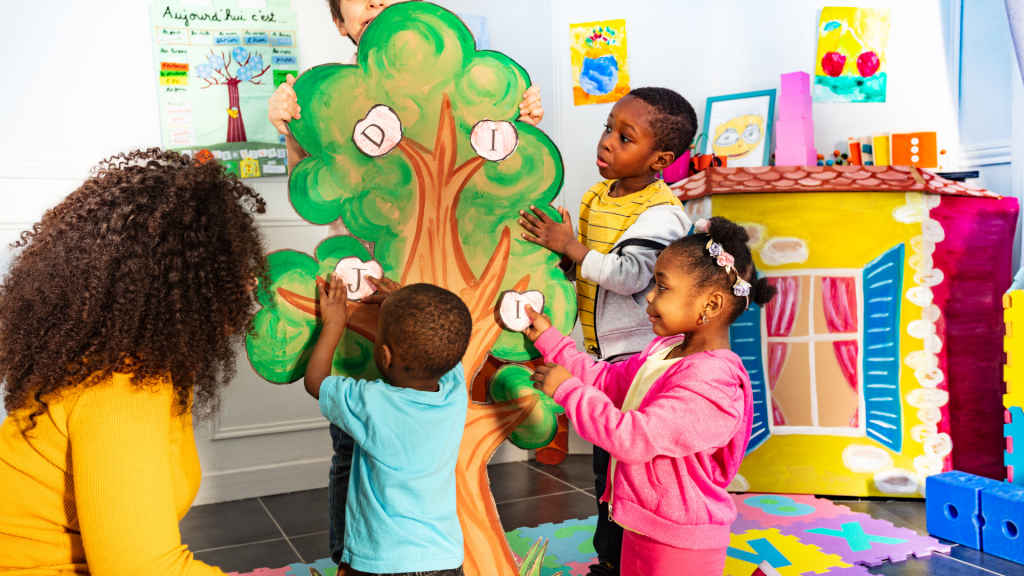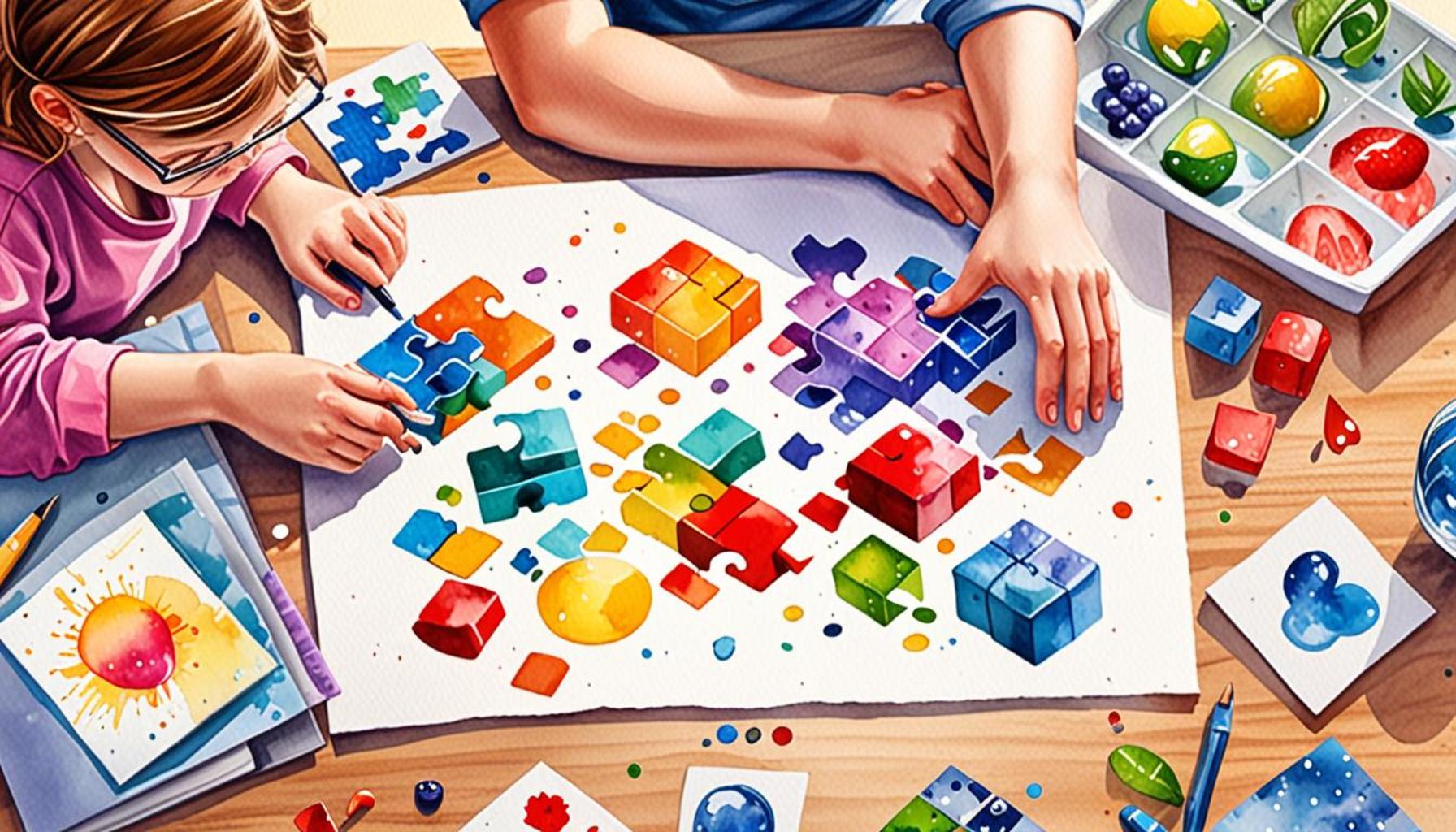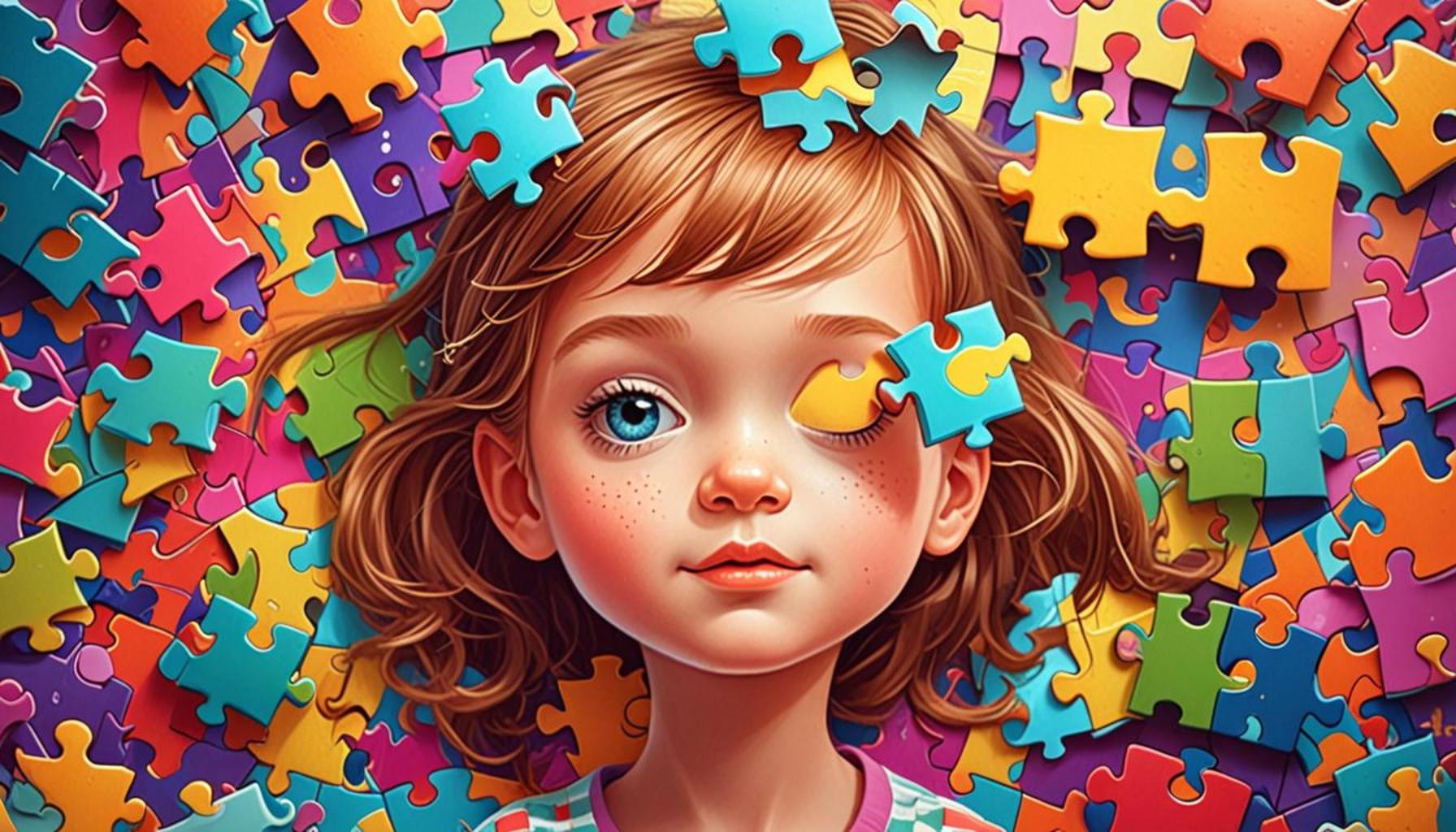The Influence of Memory Games on the Cognitive Development of Preschoolers

Understanding Cognitive Development Through Memory Games
Memory games serve as more than just a source of amusement for preschoolers; they are vital tools that propel the cognitive development of young minds. By engaging in activities that encourage memory recall and recognition, children are simultaneously honing essential skills that underpin their learning progress. Parents and educators who recognize the significance of these games can better support children as they navigate the intricacies of early education.
Key Benefits of Memory Games
- Improved Attention Span: Memory games require children to pay close attention to details, thereby enhancing focus. This skill is particularly useful as children transition into structured school environments where sustained attention is essential.
- Enhanced Recall: Through repetition and practice, memory tasks strengthen neural pathways associated with memory retrieval. Studies have shown that consistent engagement in such activities can lead to improved academic performance in later years.
- Problem-Solving Skills: Many memory games involve strategy and critical thinking. For example, card-matching games not only challenge players to remember the positions of cards but also encourage them to devise strategies to outsmart opponents, fostering analytical thinking.
- Social Skills: Engaging in memory games often requires collaboration and communication, thereby enhancing social interactions. These experiences reinforce teamwork and teach children how to share successes and manage losses gracefully.
Research indicates that children who frequently participate in memory-enhancing activities often perform better when they enter formal education settings. They showcase a deeper understanding of language development and exhibit stronger mathematical reasoning. According to findings published by the American Psychological Association, early cognitive training, including memory games, correlates with higher academic achievements over time. By incorporating such engaging play into daily routines, caregivers can make a significant impact on the foundational skills that preschoolers need to thrive.
Exploring the Connection
When we explore various types of memory games, it becomes clear how these activities specifically influence cognitive skills. Traditional card games, for instance, can be easily adapted to enrich learning experiences at home or in the classroom. Meanwhile, digital memory games available through apps offer interactive ways to stimulate children’s minds, making learning both fun and accessible. Products like Peak and Lumosity not only target memory but also engage children in a range of cognitive functions, from problem-solving to language skills.
Moreover, physical toys—such as memory match card sets or puzzle games—bring a tactile element to learning that can be particularly beneficial to young learners. As we delve deeper into the topic, we will unveil the myriad of effects that these seemingly simple games can have on the cognitive journey of children, opening avenues for exploration and discovery in their educational path.
DON’T MISS: Click here to dive deeper

The Dynamic Role of Memory Games in Learning
Memory games play a crucial role in shaping the cognitive landscapes of preschoolers, acting as a springboard for enhancing memory skills and overall mental agility. These games are not merely entertaining; they cultivate critical developmental milestones that can significantly influence a child’s educational trajectory. The cognitive advantages of these playful activities are particularly compelling, making them vital components of early childhood education.
Cognitive Skills Enhanced by Memory Games
Memory games span a variety of formats, each contributing to the cognitive development of children in unique ways. Here are some of the specific skills that these games help to foster:
- Visual Recognition: Memory games often require players to identify images or symbols, thus enhancing their visual recall abilities. This skill is foundational for reading and other academic activities that demand visual processing.
- Language Development: Many memory games incorporate vocabulary-building elements, encouraging children to recognize and articulate new words. Such interactions can significantly broaden their language base, facilitating better communication with peers and adults.
- Executive Functioning: These games often require children to hold information in mind, make decisions, and shift strategies based on findings, thereby boosting executive functioning skills such as planning, organization, and cognitive flexibility.
- Creativity: Engaging in memory games encourages imaginative thinking as children construct narratives or scenarios around the objects or themes presented in the game, fueling their creative expression.
Research in child development underscores that engaging cognitive activities during preschool years can lead to enhanced performance in elementary education and beyond. A study published in the Journal of Experimental Child Psychology indicates that children who regularly participate in memory-enhancing games demonstrate stronger problem-solving abilities and higher scores in standardized assessments. These findings support the notion that practical, play-based learning approaches lay the groundwork for academic success.
The Variability of Memory Games and Their Educational Benefits
The adaptability of memory games makes them particularly versatile in various learning environments. Traditional card games can seamlessly integrate into family game nights, helping to foster a sense of connection while simultaneously promoting cognitive skills. On the other hand, modern educational apps have emerged, providing interactive experiences that captivate attention and actively engage young minds. Applications like Endless Alphabet and Memory Trainer serve to enhance memory while also incorporating rich, interactive content that caters to various learning styles.
Furthermore, physical games that include tactile elements, such as textured boards or sound-making components, engage preschoolers in multi-sensory learning experiences. By blending auditory, visual, and kinesthetic activities, these games create a more enriching context that fosters deeper understanding.
As we explore the myriad forms of memory games and their specific cognitive benefits, it becomes evident that these seemingly simple tools can profoundly influence the mental development of young children. By investing in these playful and educational methods, caregivers can unlock the potential for learning that paves the way for successful lifelong education.
The Influence of Memory Games on Cognitive Development
As preschoolers navigate their early formative years, the integration of memory games into their learning experiences can be transformative. These games not only entertain but also serve as powerful tools to enhance cognitive functions such as attention, concentration, and problem-solving skills.Memory games, often designed to be simple and engaging, push children to recall information and make connections between different pieces of knowledge. This process actively stimulates their working memory, an essential component of cognitive development that aids in decision-making and learning new concepts. For instance, by matching pairs of cards, children develop their ability to remember locations and details, which can improve their academic performance as they move into formal schooling.Moreover, memory games can foster social skills as children often play in groups, learning to communicate, cooperate, and engage in healthy competition. This group dynamic not only provides emotional support but also encourages the development of empathy, as children navigate wins and losses together. To further explore this vital topic, let’s take a closer look at the specific benefits of memory games:
| Advantage | Description |
|---|---|
| Enhanced Cognitive Skills | Memory games challenge children to think critically and improve their problem-solving abilities. |
| Social Development | Playing memory games in groups helps children cultivate communication skills and teamwork. |
Engaging in memory games regularly can lay a solid foundation for preschoolers, equipping them with essential skills that extend beyond their early learning environments. As more parents and educators seek effective developmental tools, the role of memory games in cognitive growth cannot be underestimated. Researchers continue to uncover specific methodologies and strategies to optimize these benefits, guiding caregivers in their pursuit to foster well-rounded children ready to thrive academically and socially.
DISCOVER MORE: Click here to learn about collaborative puzzle-solving
Building Social Skills Through Collaborative Memory Play
While the cognitive benefits of memory games are well-documented, their influence extends beyond individual learning. Memory games often foster social interactions that are essential for preschoolers during this formative stage. Engaging in memory games with peers or family members introduces shared experiences that encourage cooperation and communication. Such interactions can be fundamental in promoting key social skills, including teamwork, empathy, and conflict resolution.
The Power of Playful Interaction
When children engage in memory games together, they share responsibility for outcomes and learn to navigate the intricacies of social play. For instance, as they take turns flipping cards or answering questions, preschoolers practice waiting, listening, and engaging in dialogues about the game. This not only strengthens their vocabulary and language skills but also helps them understand the perspectives of others—key components of emotional intelligence.
A study published in the International Journal of Child Development revealed that children who consistently partake in group memory games demonstrate enhanced prosocial behavior when compared to peers who engage in solitary play. The authors noted that these children exhibited improved abilities to empathize and collaborate, crucial skills needed not only in school settings but throughout their lives.
Cognitive Development through Collaborative Games
Moreover, collaborative memory games often involve strategic thinking, as players can discuss potential moves, share strategies, and analyze patterns together. This teamwork mechanism invites children to articulate their thoughts and rationales, enriching the learning experience. For example, games that involve deducing which cards have already been flipped can spur conversations about memory techniques, thereby deepening their understanding of the game mechanics. This process of shared learning leads to critical thinking skills that extend into various areas of education.
The blend of social interaction and memory enhancement in such games aligns perfectly with the educational standards being implemented in preschools across the United States. Play-based learning frameworks are increasingly being recognized for their ability to address multiple aspects of child development, including social, emotional, and cognitive growth. In recognizing how essential these social interactions are, many educators now encourage memory games as part of their curriculum, emphasizing their role in cultivating a well-rounded educational experience.
The Role of Technology in Memory Game Engagement
In today’s digital age, the landscape of memory games has expanded significantly with the introduction of technology. Tablet apps and interactive online platforms have transformed how young children engage with memory challenges. Many of these educational apps incorporate complex narratives and captivating graphics, which can draw in children and maintain their interest. For example, popular platforms like ABCmouse and Osmo utilize advanced animation and tactile interaction, thus making memory games a more immersive experience.
However, while these digital options offer engaging methods for cognitive development, experts advocate for a balanced approach. The importance of face-to-face interactions and physical games cannot be understated, as they cultivate a sense of community and emotional connection that digital platforms may not fully replicate. Balancing screen time with inclusive card games or memory challenges fosters well-rounded skills in preschoolers while promoting healthy play habits.
The insights gained from molding both cognitive and social skills through memory games reveal an essential aspect of preschool education. By fostering both independent and collaborative play, caregivers and educators form a multi-faceted approach that not only nurtures core cognitive competencies but also builds the promise of future interpersonal relationships. As the educational landscape continues to evolve, integrating memory games thoughtfully prepares children for the diverse challenges they will inevitably encounter in their learning journeys.
DISCOVER MORE: Click here to dive deeper
Conclusion: A Holistic Approach to Cognitive Growth
In the exploration of The Influence of Memory Games on the Cognitive Development of Preschoolers, it is evident that these engaging activities serve as more than just entertainment; they play a pivotal role in shaping young minds. Through the challenging yet enjoyable dynamics of memory games, preschoolers not only enhance their cognitive abilities—such as memory retention, attention span, and critical thinking—but also acquire vital social skills that will benefit them in myriad aspects of life. The interplay of both solitary and collaborative gameplay fosters a unique environment where children can sharpen their individual cognitive faculties while cultivating interpersonal relationships.
Moreover, the integration of technology into memory games offers exciting new avenues for engagement, making learning interactive and appealing. However, the importance of traditional, face-to-face interactions should not be overlooked, as they provide a foundational sense of community and emotional intelligence that digital experiences may lack. Striking a balance between the two forms of play is essential for nurturing a well-rounded educational experience in early childhood.
As educators and caregivers recognize the comprehensive benefits of memory games, their incorporation into preschool curricula is becoming increasingly acknowledged. This not only addresses the cognitive needs of children but also aligns with modern educational standards that emphasize holistic development. Ultimately, memory games, in all their variations, serve as vital tools in preparing preschoolers for the challenges ahead, equipping them with the skills and resilience necessary to thrive academically and socially.


